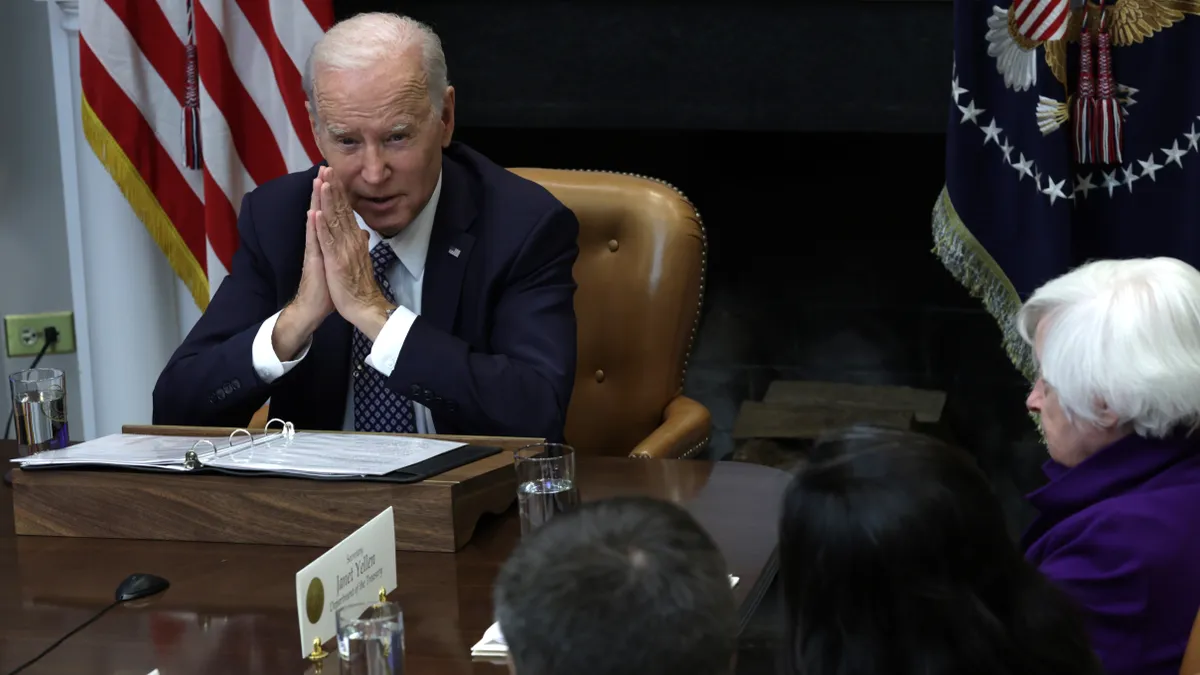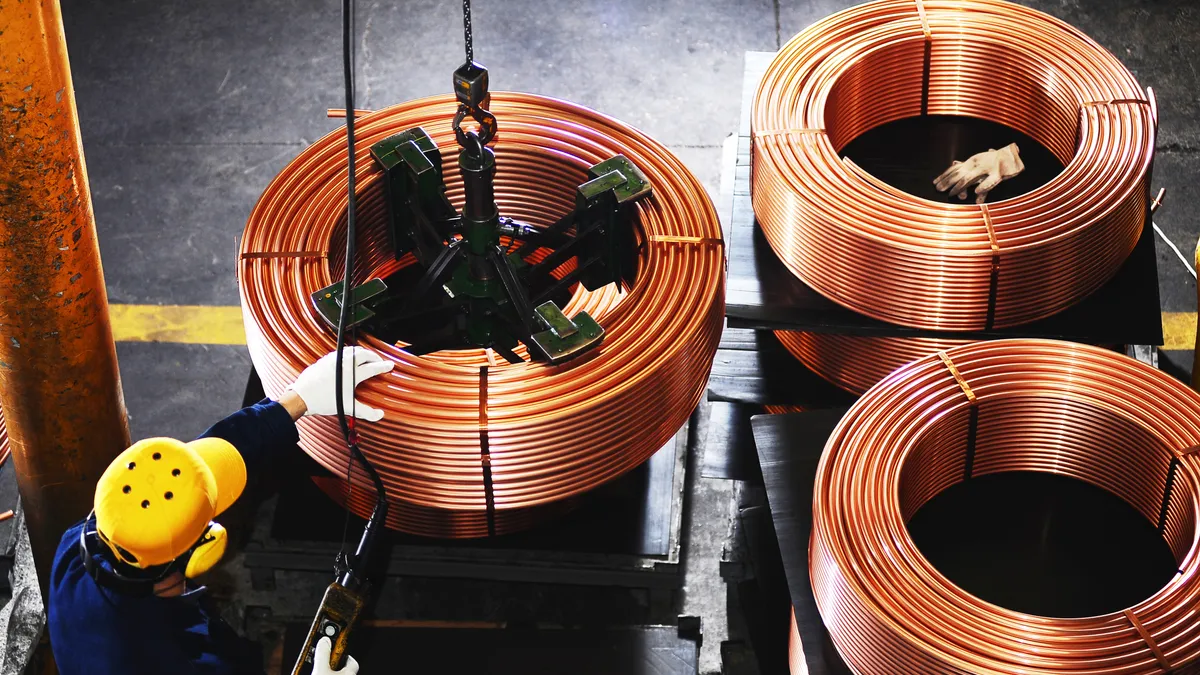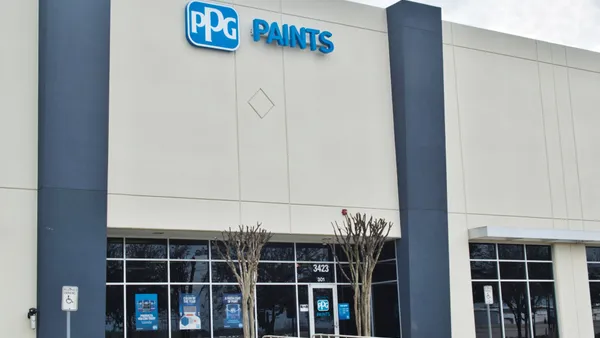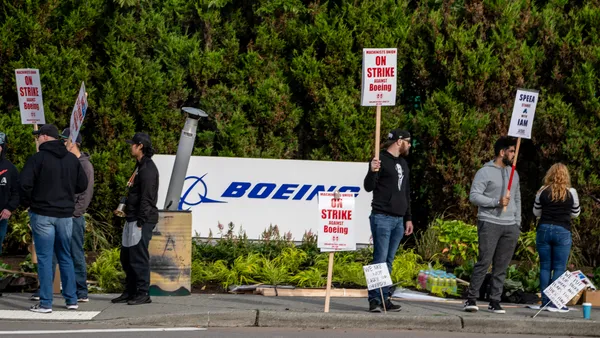Dive Brief:
- The Biden-Harris administration announced new initiatives aimed at helping U.S. workers develop skills needed to fill in-demand jobs on Tuesday.
- The initiatives include a new advanced manufacturing workforce program and five workforce hubs, which would help create various pathways leading to jobs in manufacturing sectors.
- The initiatives are part of the administration’s Investing in America strategy, which would help create jobs and build a clean energy economy, boost manufacturing and strengthen supply chains.
Dive Insight:
The White House said private companies had announced over $470 billion in clean energy, EVs, batteries, semiconductors and biomanufacturing projects since Biden took office.
Now, the administration is focusing its efforts on building up a workforce to support the burgeoning manufacturing industry. This includes working with labor unions, workforce development organizations and companies to expand pre- and registered apprenticeships and technical education at all levels.
Additionally, the administration will work to create “workforce hubs” in Phoenix, Arizona; Columbus, Ohio; Pittsburgh, Pennsylvania; Baltimore, Maryland; and Augusta, Georgia, focusing on career development in the sectors that have emerged in those regions.
For example, Phoenix will focus on job development within semiconductor manufacturing. Contract manufacturer Taiwan Semiconductor Manufacturing Co. currently has two fabrication facilities under construction and is expected to create over 4,500 jobs in the Phoenix area.
“That’s the Biden education pathway,” First Lady Jill Biden said in her remarks at the Department of Labor’s Investing in America’s Workforce Convening on Tuesday. “It starts with free, high-quality universal preschool and creates a high school experience that prepares students for their next steps. It provides two years of affordable community college and opens up avenues to a four-year degree for those who want one.”
Legislation such as the Bipartisan Infrastructure Law, the CHIPS and Science Act, and the Inflation Reduction Act funded programs such as the Energy Department’s Industrial Assessment Centers to expand pathways toward jobs in the industry.
Last week, the Department of Commerce opened applications for the Regional Technology and Innovation Hubs (Tech Hubs) grant program, where cities can apply to become technology hubs and receive funding as well as build a more diverse workforce.











